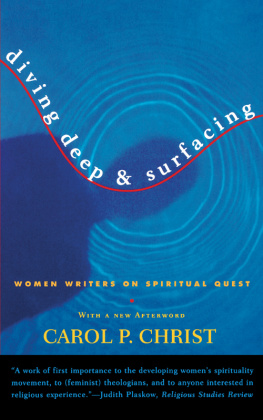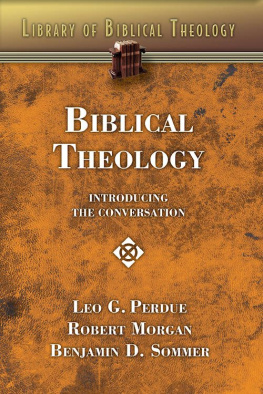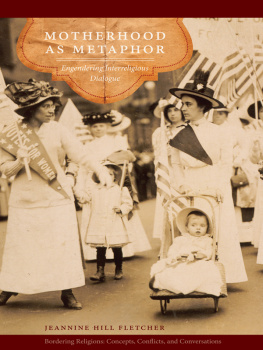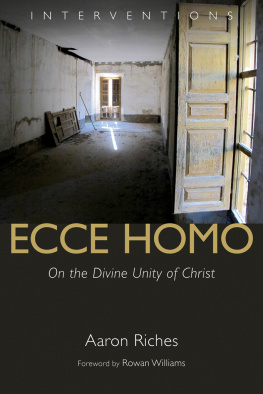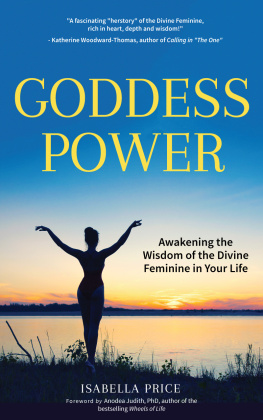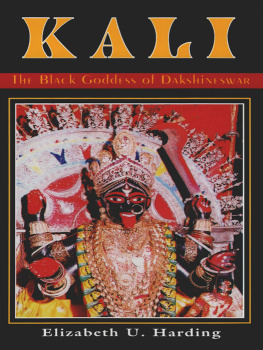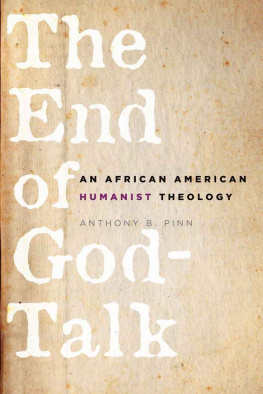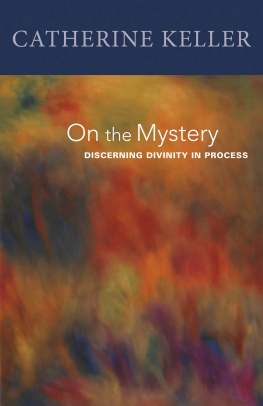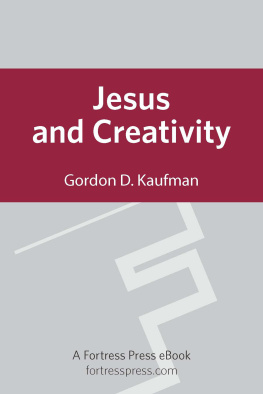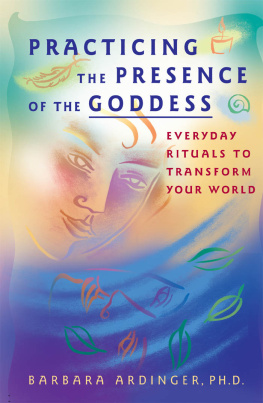Goddess and God in the World -- Goddess and God in the World
1
Additional Praise for Goddess and God in the World
Goddess and God makes clear that womens experience and perspec-tives enrich and transform theology and also that some of the central theological debates continue. Do we think of God as the impersonal ground of everything or as the personal embodiment of cosmic love? Is one view more feminine or more feminist than the other?
John B. Cobb Jr., professor emeritus and cofounding director of the Center for Process Studies, Claremont School of Theology
Author of Process Theology and For the Common Good
What is most striking about this book is the sustained engage-ment with one another of two brilliant thinkers with radically divergent theologies. They are, of course, still committed feminists, but this book presents a model of theological conversation that challenges all of us, not just women, to reflect deeply on our own understanding of the divine.
Christine Downing, professor of mythological studies, Pacifica Graduate Institute
Author of The Goddess and Womens Mysteries
Goddess and God in the World is essential reading. Carol P. Christ and Judith Plaskow bring their formidable intellects and compassionate imaginations to the difficult, necessary work of thinking constructively about the Divine. Their exploration ranges widely, reaches deeply, and offers resources to us all.
Kecia Ali, associate professor of religion, Boston University
Author of Sexual Ethics and Islam and The Lives of Muhammad
The engaging narratives and conversations in Goddess and God in the World brilliantly model the authors conviction that divinity is to be found within our lives and in our shared experience. Carol P. Christ and Judith Plaskow have given us a unique gift: the record of a long and evolving friendship between two of our foremost feminist foremothers. I am thrilled with this book.
Marcia Falk, author of The Book of Blessings and The Days Between
Goddess and God in the World offers readers the chance to sit in a cozy room with two of the greats of feminist theology. In this work, Carol P. Christ and Judith Plaskow answer all the questions you would pose if you had an audience with them. You overhear them laugh, reminisce, pontificate, argue and laugh again. They share their theological journeys with academia, philosophy, theological traditions and Scripture. Beautifully weaving together their personal paths with the histories of Judaism, Christianity, Western philosophy and Goddess traditions, Plaskow and Christ offer distinct theologies that wrestle with the depth and breadth of patriarchy. They emerge different than how they entered, and yet maintaining deep and meaningful faiths. Most importantly, they engage each other in a way that is quickly disappearing from the academy: they note their differences, critique one another other, revel in their similarities, and debate without needing to convert. May this work be a model for all dialogical theology!
Monica A. Coleman, professor and codirector of the Center for Process Studies, Claremont School of Theology
Author of Making a Way Out of No Way and Bipolar Faith
Goddess and God in the World
Conversations in Embodied Theology
Carol P. Christ and Judith Plaskow
Fortress Press
Minneapolis
GODDESS AND GOD IN THE WORLD
Conversations in Embodied Theology
Copyright 2016 Fortress Press. All rights reserved. Except for brief quotations in critical articles or reviews, no part of this book may be reproduced in any manner without prior written permission from the publisher. Visit http://www.augsburgfortress.org/copyrights/ or write to Permissions, Augsburg Fortress, Box 1209, Minneapolis, MN 55440.
Cover image: The Tree of Life by Judith Shaw
Cover design: Joe Reinke
Library of Congress Cataloging-in-Publication Data
Print ISBN: 978-1-5064-0118-8
eBook ISBN: 978-1-5064-0119-5
The paper used in this publication meets the minimum requirements of American National Standard for Information Sciences Permanence of Paper for Printed Library Materials, ANSI Z329.48-1984.
Manufactured in the U.S.A.
This book was produced using Pressbooks.com.
This book is dedicated
to
the power of female friendship
with thanks to
friends who read and commented on our manuscript
and helped us to see what it could become
Christine Downing, Martha Ackelsberg, Nicola Morris,
Joyce Zonana, and Elizabeth Chloe Erdmann
Contents
3
Introduction: Goddess and God in Our Lives
People who reject the popular image of God as an old white man who rules the world from outside it often find themselves at a loss for words when they try to articulate new meanings and images of divinity. Speaking about God or Goddess is no longer as simple as it once was. Given the variety of spiritual paths and practices people follow today, theological discussions do not always begin with shared assumptions about the nature of ultimate reality. In the United States, the intrusion of religion into politics has led many people to avoid the subject of religion altogether. In families and among friends, discussions of religion often culminate in judgment, anger, or tears. Sometimes the conversation is halted before it even begins when someone voices the opinion that anyone who is interested in religion or spirituality is naive, unthinking, or backwardor, alternatively, that religious views are matters of personal preference and not worth discussing at all.
Talking about divinity is also surprisingly intimate. Unless we simply repeat what we have been taught, it is not possible to speak about what we believe about Goddess or God without saying something important about ourselves. Revealing our deepest convictions can leave us feeling vulnerable and exposed. Moreover, many otherwise well-informed adults whose religious educations were nonexistent or stopped with Sunday school lack a vocabulary for intelligent discussion of religion. Without new theological language, we are likely to be hesitant, reluctant, or unable to speak about the divinity we struggle with, reject, call upon in times of need, or experience in daily life. Yet ideas about the sacred are one of the ways we orient ourselves in the world, express the values we consider most important, and envision the kind of world we would like to bring into being. Our ideas about divinity are also intimately connected to questions that trouble us in the night about whether life has purpose and what that purpose might be.
Theology and Women
Theology is an important way to address these questions and this why we are drawn to it. We began our graduate studies in theology in an era when theologians and theology students were almost all men. We had been taught that the sex and gender of a theologianor for that matter of any other writerwas irrelevant. But we came to understand that the exclusion of female voices does make a difference, not only on questions about women, but on other questions as well. As we developed our feminist perspectives in conversation with each other, we became instrumental in founding the feminist study of women and religion.
Our book Womanspirit Rising was the first collection of readings in the emerging field of feminist theology. It would be an understatement to say that our friendship sustained us through many difficult and rewarding times.


